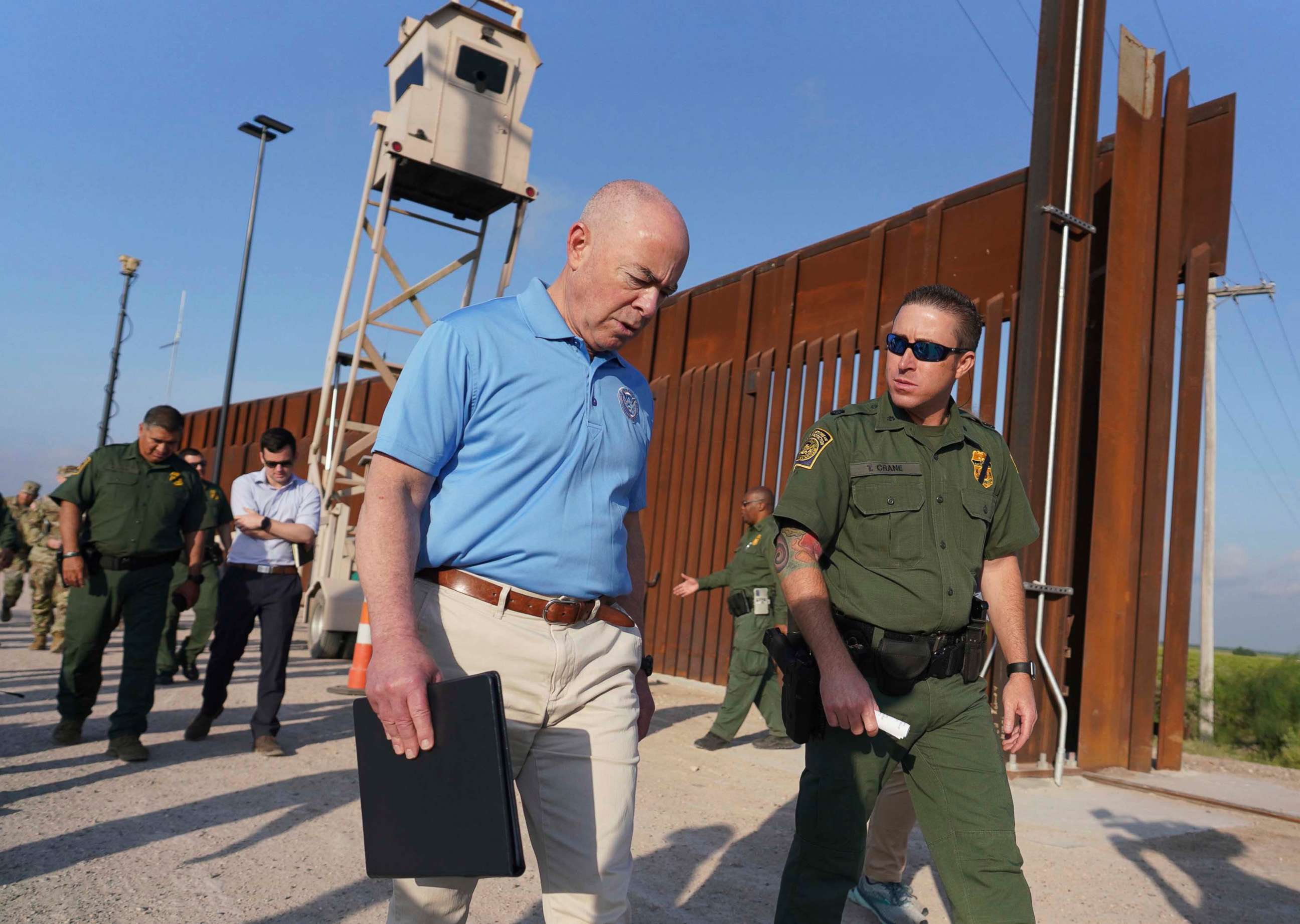Law enforcement frustration along border 'earned,' Mayorkas says
Apprehensions have been at record levels since January.
In the wake of the apparent worst human smuggling tragedy in U.S. history, and amid migrants crossing the border at record levels, frustration among border patrol agents and other law enforcement on the ground is "earned," Homeland Security Secretary Alejandro Mayorkas said.
"Our Border Patrol agents, you know, their morale is down. And I understand why," he told Fraternal Order of Police President Patrick Yoes on a podcast this week sponsored by FOP, one of the largest police unions in the country.
Migrants have been streaming across the border and getting taken into custody at record levels since the start of the year -- averaging well over 200,000 apprehensions a month.
Mayorkas touched on the catastrophe earlier this week on the outskirts of San Antonio, Texas, that left more than 50 migrants dead after being trapped in a broiling tractor-trailer -- saying it shows the danger of human smuggling organizations that charge desperate people to transport them across the border illegally.

"We have 50 people dead, some of whom are children. And that just exhibits the cruelty of the smuggling organizations and why we need an all of government and are executing an all of government attack against them," he said. "It's getting hotter. And the journeys that much more dangerous we got to that to break it up no doubt."
Two men have been charged by the Justice Department with human smuggling for their alleged role in transporting migrants who ultimately died near San Antonio.
Mayorkas has said DHS has been out front on combatting human smuggling operations, establishing a task force to aggressively combat cartel smuggling operations.
He also placed blame on other countries, saying they need to secure their borders and making the case the U.S. cannot be the first line of defense for border security. He said there's a need to limit how much time it takes to adjudicate the average asylum case, which he said now can take six to eight years under the current structure.

Along the border, he said there's been an increase in drugs being interdicted thanks to new non-invasive technology that is able to identify drugs through ports of entry.
Mayorkas also said he is "concerned" about funding streams for local law enforcement, and while directly not naming any cities, noted some have decreased their law enforcement budgets.
"We need to be resourced and local law enforcement needs to be resourced to match the level of crime that we're all encountering," he said. "We have a tough time recruiting personnel because law enforcement is under attack."
Mayorkas, a federal prosecutor before joining DHS, said he sees people "making bail" that wouldn't have otherwise made bail when he was at the Justice Department.
"An individual commits a crime with a firearm, that's a tough bail to make back in the day. And yet I you know, in speaking with police officers and deputy sheriffs in different parts of the country, I hear about people making bail pending trial. And I think that creates a danger," he said.
Mayorkas also touched on the root causes of recent mass shootings, including in Buffalo, New York, and Uvadle, Texas, and warning signs mass shooters might exhibit.
"I got to tell you that these narratives right spread so fast. Now, on social media, online platforms, you know, people are inspired by, you know, the massacre in New Zealand a number of years ago, and they learn of it on social media," he said. "Such a small percentage of people with mental health concerns actually, commit those violent acts. But those violent acts do so much damage in our country."




